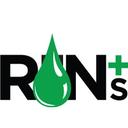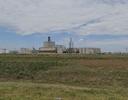SAFETY FIRST

November 17, 2014
BY Ron Kotrba
As we finalized this print edition of Biodiesel Magazine with a focus on plant safety, a flash fire was being reported at Midwest Biodiesel, which reportedly ignited as a result of welding repairs to a tank with alcohol, injuring two people. Unfortunately, these types of events are all too common in the biodiesel industry. In our featured article, “Safety Your Way,” I talk with several biodiesel producers of various sizes—Pacific Biodiesel, Kelley Green Biofuel and Piedmont Biofuels—in addition to process technology providers Crown Iron Works and WB Services to get their take on best practices from design and procedural standpoints for running a safe commercial biodiesel operation. Lyle Estill, president of Piedmont Biofuels in Pittsboro, North Carolina, says Piedmont routinely shuts down in slow periods for maintenance to ensure smooth and safe operation for the high production periods.
“Biodiesel plants are at their most dangerous when construction and hot work is underway,” he says. Since designs are constantly changing and improving, plants are frequently “under construction” even while fuel is still being produced. “Stop production during plant modifications,” Estill advises. “I am constantly relieved when the welding and grinding equipment is collecting dust.”
In 2014, Pacific Biodiesel’s Big Island Biodiesel facility began a major effort to revamp and thoroughly examine the safety program in place at the plant in Keaau, including a complete update of its Process Safety Management program. Company vice president Kelly King says safety has been one of Pacific Biodiesel’s biggest focuses this year. “Ultimately, commercial-scale biodiesel production requires a high level of increased safety procedures and equipment that must be an integral part of the budget and SOPs,” she says.
Advertisement
Advertisement
“Biodiesel is critically important for our economy and environment, but it must be manufactured safely at all scales of production for its benefits to be realized,” says Kristopher Kelley, founder and CEO of Kelley Green Biofuel. His is a small operation, producing up to 100,000 gallons a year. “Maintenance and safety are certainly connected, as failing equipment can certainly be a safety hazard,” Kelley says, adding that with a small facility, it’s manageable to check over equipment daily. He adds that a good inventory of spare parts and backups are essential so small maintenance issues can be resolved without delaying a batch.
Check out the full article on page 16 for the rest of the story. And like Big Island Biodiesel’s Safety Officer Joe Kashuba says, “If you feel something is not safe, speak up. Safety is everyone’s responsibility.”
Advertisement
Advertisement
Related Stories
Biodiesel capacity in the U.S. and Canada dipped slightly stable in 2024, with several renewable diesel producers reporting headwinds and lower margins alongside a drove of SAF projects in various stages of development.
The IEA’s Task 39 group has new research regarding the development and status of the sustainable aviation fuel industry.
The U.S. EPA on Nov. 16 released updated RIN data, reporting that nearly 2.11 billion RINs were generated under the RFS in October, up from 1.81 billion generated during the same month of last year.
Conestoga to host SAFFiRE cellulosic ethanol pilot plant
Conestoga Energy and SAFFiRE Renewables LLC announced on Nov. 16 their agreement for Conestoga to host SAFFiRE’s cellulosic ethanol pilot plant at Conestoga’s Arkalon Energy ethanol facility in Liberal, Kansas.
Officials at Calumet Specialty Products Partners L.P. discussed the company’s proposed plans to boost sustainable aviation fuel (SAF) production at its Montana Renewables biorefinery during third quarter earnings call, held Nov. 9.
Upcoming Events










